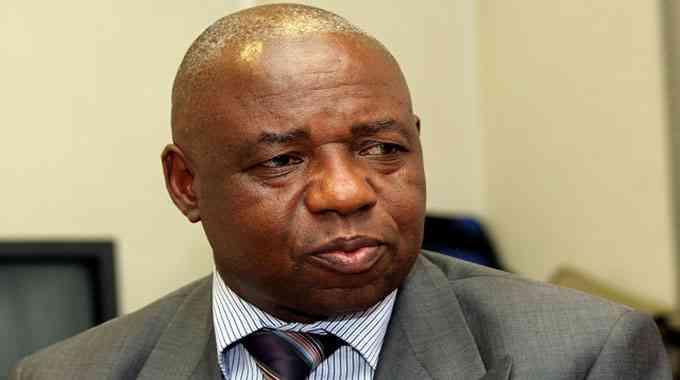News / National
IsiNdebele language under threat
22 Oct 2024 at 07:02hrs |
2 Views

The iSiNdebele language is under threat of being eliminated, suppressed, and corrupted, despite ongoing efforts by speakers and writers to preserve and promote it, experts revealed during the inaugural Mthandazo Ndema Ngwenya Memorial Lecture held in Bulawayo last week. The event, organized by the Public Policy Research Institute of Zimbabwe and Ibhetshu Likazulu in partnership with the Centre for Information Technology (CITE), highlighted growing concerns about the state of the language.
The memorial lecture honored the late academic, politician, cultural activist, and author Mthandazo Ndema Ngwenya, who died in a tragic car accident in 1992. Ngwenya, born in Nkayi, Matabeleland North, was an influential figure in advancing democracy, culture, and the Ndebele language. He authored several Ndebele novels, many of which became school set books, including Umhaso Zhi Mthakathi, Ungcingci Kandoyi, and Ngitshilo Ngitshilo.
During the memorial, Felix Moyo, former spokesperson for the National University of Science and Technology (NUST), actor, author, and publisher, expressed his concerns about the challenges facing iSiNdebele.
"Ndema was my best friend, and we shared a deep passion for iSiNdebele. The language is facing serious challenges in this country, and it is clear that we have a problem," said Moyo. He explained that his commitment to the language led him to establish Usiba Publishers, which focuses exclusively on publishing iSiNdebele books.
"We are making efforts to come together to promote iSiNdebele, and I will always support anything that continues Ndema Ngwenya's legacy," Moyo added.
Ngwenya's widow, Elizabeth, reflected on her late husband's dedication to his writing. "When he was working on his books, not even my food could distract him. He was completely absorbed in his work until it was finished. He was an exemplary figure in our lives and to those who knew him," she said.
Samukele Hadebe, academic and public policy researcher, delivered the memorial lecture, emphasizing the broader significance of Ngwenya's work. He argued that Ngwenya's writings often highlighted the challenges facing Matabeleland and critiqued the incompatibility of the British system with Zimbabwe's cultural context.
Hadebe further noted that Ngwenya exemplified the role of a writer as described by Chinua Achebe—as a cultural nationalist, teacher, social critic, and active participant in shaping his community's future. "Ngwenya lived up to the expectations of a writer. He was a novelist, poet, actor, critic, educationist, and public intellectual, deeply connected to his culture and community," Hadebe said.
Ngwenya's contributions to the iSiNdebele language and culture continue to inspire, but speakers at the event stressed the urgent need for collective action to protect and preserve the language. The growing pressures of modernity, coupled with neglect, were identified as serious risks that could further erode the rich linguistic heritage of Matabeleland if not addressed.
The memorial served as a call to action for educators, policymakers, and cultural activists to invest in the promotion and preservation of iSiNdebele, ensuring it remains vibrant for future generations.
The memorial lecture honored the late academic, politician, cultural activist, and author Mthandazo Ndema Ngwenya, who died in a tragic car accident in 1992. Ngwenya, born in Nkayi, Matabeleland North, was an influential figure in advancing democracy, culture, and the Ndebele language. He authored several Ndebele novels, many of which became school set books, including Umhaso Zhi Mthakathi, Ungcingci Kandoyi, and Ngitshilo Ngitshilo.
During the memorial, Felix Moyo, former spokesperson for the National University of Science and Technology (NUST), actor, author, and publisher, expressed his concerns about the challenges facing iSiNdebele.
"Ndema was my best friend, and we shared a deep passion for iSiNdebele. The language is facing serious challenges in this country, and it is clear that we have a problem," said Moyo. He explained that his commitment to the language led him to establish Usiba Publishers, which focuses exclusively on publishing iSiNdebele books.
"We are making efforts to come together to promote iSiNdebele, and I will always support anything that continues Ndema Ngwenya's legacy," Moyo added.
Samukele Hadebe, academic and public policy researcher, delivered the memorial lecture, emphasizing the broader significance of Ngwenya's work. He argued that Ngwenya's writings often highlighted the challenges facing Matabeleland and critiqued the incompatibility of the British system with Zimbabwe's cultural context.
Hadebe further noted that Ngwenya exemplified the role of a writer as described by Chinua Achebe—as a cultural nationalist, teacher, social critic, and active participant in shaping his community's future. "Ngwenya lived up to the expectations of a writer. He was a novelist, poet, actor, critic, educationist, and public intellectual, deeply connected to his culture and community," Hadebe said.
Ngwenya's contributions to the iSiNdebele language and culture continue to inspire, but speakers at the event stressed the urgent need for collective action to protect and preserve the language. The growing pressures of modernity, coupled with neglect, were identified as serious risks that could further erode the rich linguistic heritage of Matabeleland if not addressed.
The memorial served as a call to action for educators, policymakers, and cultural activists to invest in the promotion and preservation of iSiNdebele, ensuring it remains vibrant for future generations.
Source - southern eye
Join the discussion
Loading comments…






























